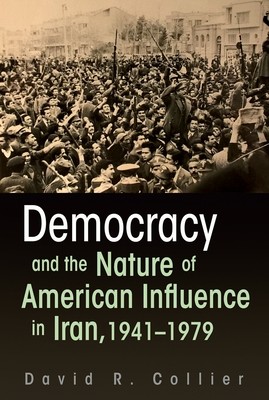
- We will send in 10–14 business days.
- Author: David R Collier
- Publisher: Syracuse University Press
- ISBN-10: 0815635125
- ISBN-13: 9780815635123
- Format: 15.4 x 22.4 x 2.4 cm, softcover
- Language: English
- SAVE -10% with code: EXTRA
Democracy and the Nature of American Influence in Iran, 1941-1979 (e-book) (used book) | bookbook.eu
Reviews
Description
Collier presents a timely and fresh reexamination of one of the most important bilateral relationships of the last century. He delves deeply into the American desire to promote democracy in Iran from the 1940s through the early 1960s and examines the myriad factors that contributed to their success in exerting a powerful influence on Iranian politics. By creating a framework to understand the efficacy of external pressure, Collier explains how the United States later relinquished this control during the 1960s and 1970s. During this time, the shah emerged as a dominant and effective political operator who took advantage of waning American influence to assert his authority. Collier reveals how this shifting power dynamic transformed the former client-patron relationship into one approaching equality.
EXTRA 10 % discount with code: EXTRA
The promotion ends in 15d.01:50:00
The discount code is valid when purchasing from 10 €. Discounts do not stack.
- Author: David R Collier
- Publisher: Syracuse University Press
- ISBN-10: 0815635125
- ISBN-13: 9780815635123
- Format: 15.4 x 22.4 x 2.4 cm, softcover
- Language: English English
Collier presents a timely and fresh reexamination of one of the most important bilateral relationships of the last century. He delves deeply into the American desire to promote democracy in Iran from the 1940s through the early 1960s and examines the myriad factors that contributed to their success in exerting a powerful influence on Iranian politics. By creating a framework to understand the efficacy of external pressure, Collier explains how the United States later relinquished this control during the 1960s and 1970s. During this time, the shah emerged as a dominant and effective political operator who took advantage of waning American influence to assert his authority. Collier reveals how this shifting power dynamic transformed the former client-patron relationship into one approaching equality.


Reviews